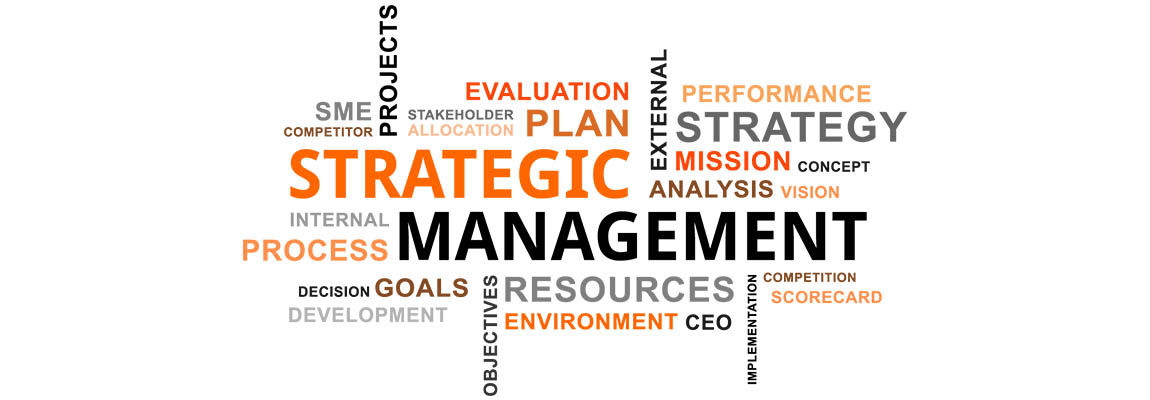The course will take an in-depth perspective into management evolution and schools of thought. The contributions of management schools from scientific, behavioural, situational, contingency and systems schools will be espoused. This course shall deal with evaluation and comparative analysis of management decision-making process. Planning, strategies and objective setting, forecasting as a guide to planning process; organizing, departmentalization, line and staff organizations structure shall be discussed extensively. Staffing, selection, reward, Development and Performance, Directing, Leadership, Motivation, Communication and Control actions.

- Faculty: Abdul Lawal
The sequence of this course is structured along with the seminar format that will expose the students to progressive theoretical and empirical developments and proper methodological perspectives on strategic management and entrepreneurship research. Students will gain a well-developed understanding of strategic management and entrepreneurship phenomena. The course will commence with a review of the foundations and intellectual legacy of the strategic management and entrepreneurship field. Next, we will focus on the main questions that define today's landscape of the fields and critically evaluate how researchers are approaching these questions.
Furthermore, based on the foundation knowledge received on the contents of strategic management and entrepreneurship literature, students will set the stage by identifying promising research areas that may be of interest to them and also in line with their thesis. In this case, we expected that the students should be able to craft research papers and get them published in top tier journals.

Students will examine globalization, its many facets, complexities, paradoxes, controversies, and effects. They will explore the institutions that dominate the global economic system; discuss and critique the ideas that support globalization and seek alternative models of global interaction.

- Faculty: Emeka Osuji
The primary objective of this course is to develop a research orientation among the scholars and to acquaint them with fundamentals of research methods. Specifically, the course aims at introducing them to the basic concepts used in research and to scientific social research methods and their approach. Some other objectives of the course are:
• To understand various research philosophies underlying body of knowledge and reality
To develop understanding of the basic framework of research process.
• To develop an understanding of various research designs and techniques.
• To identify various sources of information for literature review and data collection.
• To develop an understanding of the ethical dimensions of conducting applied research.
• Appreciate the components of scholarly writing and evaluate its quality.

- Faculty: Perekunah Eregha
- Faculty: Oluwasola Oni
- Faculty: Olusegun Vincent